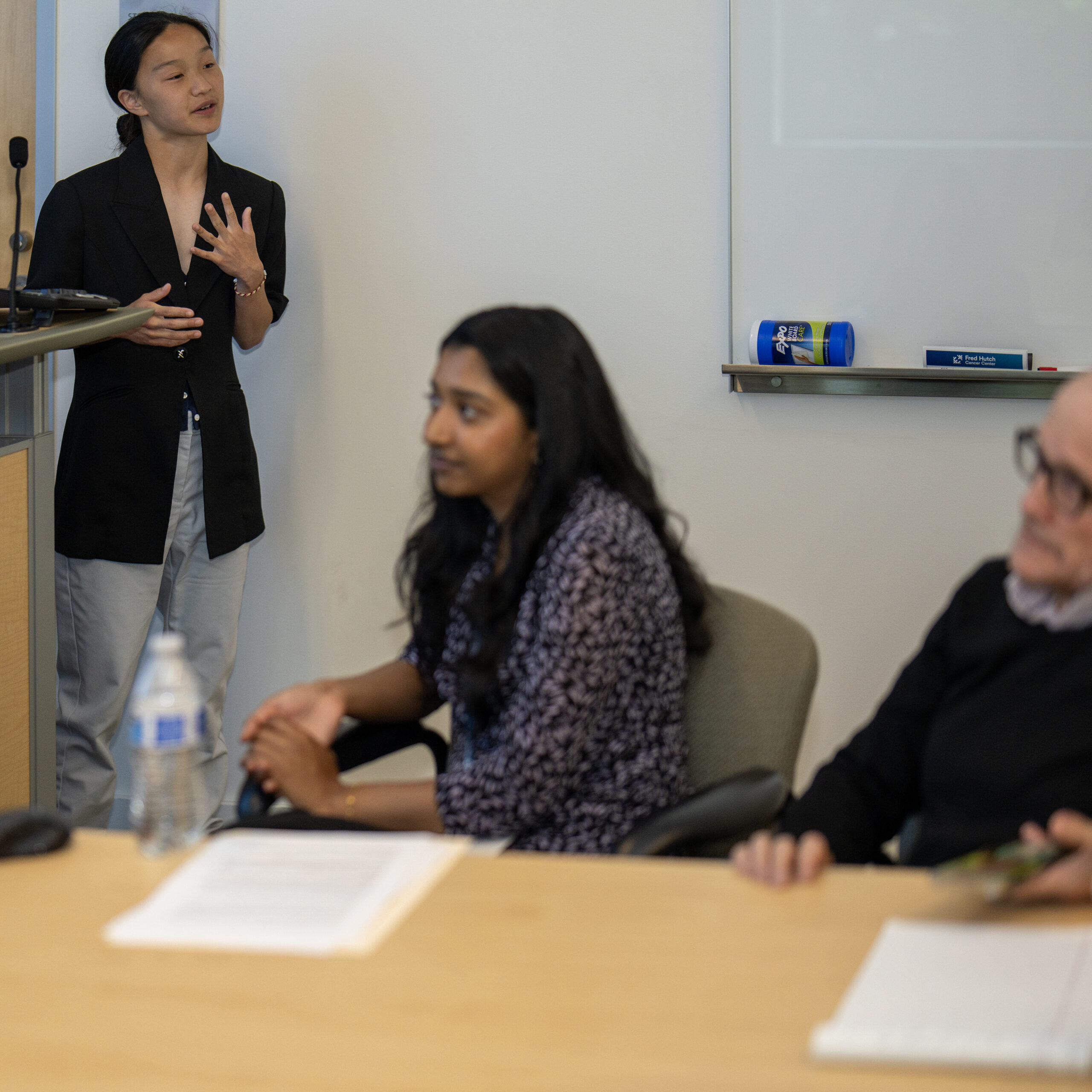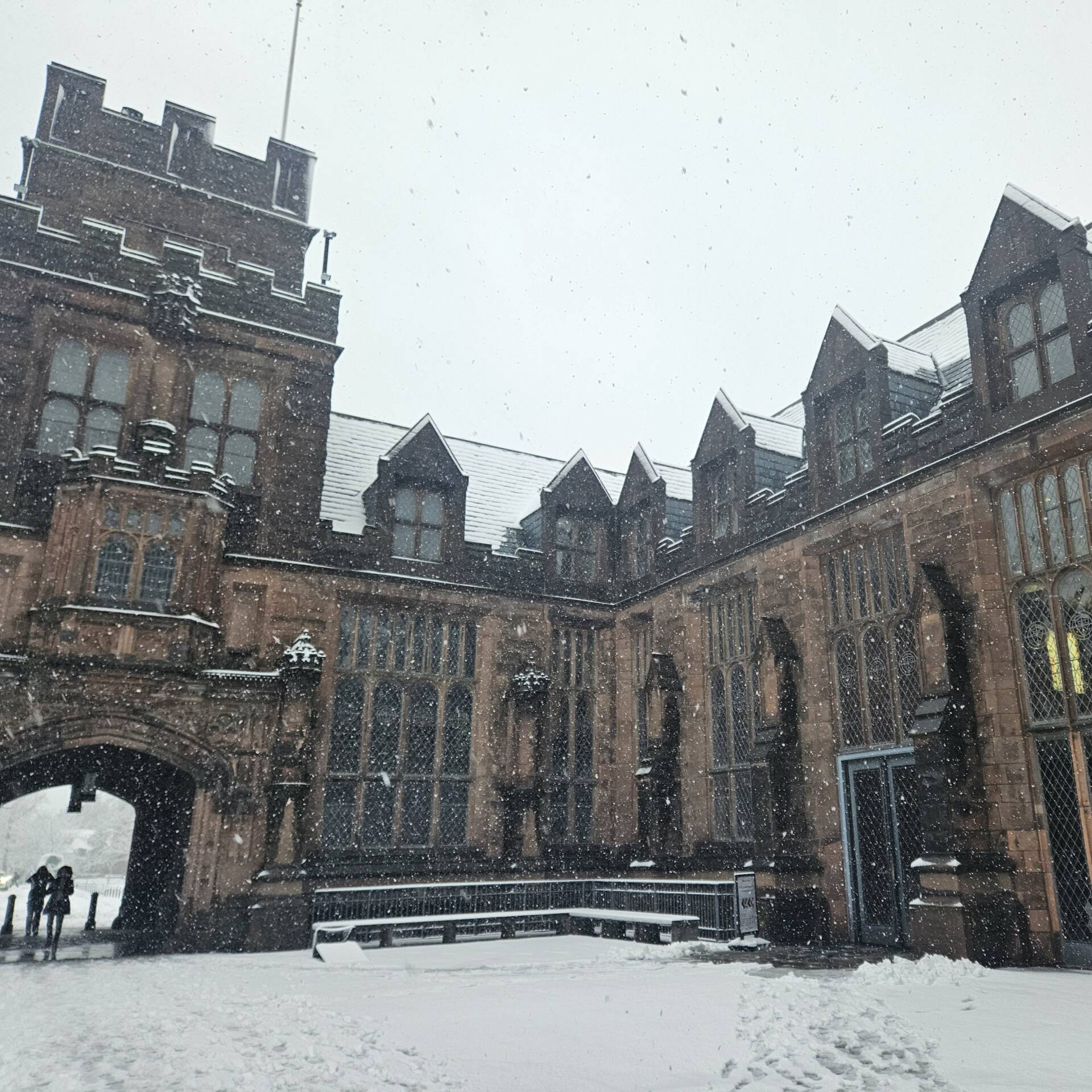After having discovered a potential funding opportunity, you might be reading the requirements for the application and find that you need to write a “research proposal” as a part of the application. This might be your first time writing a funding proposal. Here are a few tips to assist you in writing your funding proposal!
Continue reading A Quick Guide to Writing a Funding ProposalGo To A New Library
As someone who has spent more than a little time in libraries both here and back home, I can’t express how important libraries are. Oftentimes, we reduce our campus libraries to simple study spots, places we can go when we really just need to lock in. But, this is reductive. Libraries are connection points, providing the opportunity to connect and reconnect with friends and peers in the most serendipitous of ways. Additionally, our libraries are invitations to discovery. Each building stands as a testament to the physical accumulation of centuries of knowledge. From the official writings of American presidents to enzyme analyses of gene editing technology, Princeton’s libraries are practically bursting with knowledge to be uncovered.
When I talk to friends about studying at Princeton, one thing I always find myself circling back to is the beauty of our campus and community. This goes beyond the aesthetics of the buildings, but relates to the experiences that Princeton students can all share in. Our campus is one of connection and discovery, and I believe that there is no aspect that makes this as clear as our libraries. The Princeton University Library system claims the 9th largest collection of titles of any University in the country, so it’s no surprise that our campus is dotted with libraries. Of these numerous libraries though, many get overlooked. These overlooked libraries all represent unique opportunities that deserve to be noticed.
Continue reading Go To A New LibraryBalancing Research and Academics: The Art of Course Planning

Planning your courses while doing research can feel like a juggling act—one that involves not just your academic requirements but also your research commitments and, of course, your own well-being. At a place like Princeton, where opportunities in labs and research projects abound, learning how to navigate and integrate everything into your schedule can make a huge difference.
Continue reading Balancing Research and Academics: The Art of Course PlanningNavigating the Slump: When Even Your Passion Projects Get You Down

We all have those moments when we doubt where we’re headed, even when the path we’re on is one we chose with so much excitement. Maybe it’s that feeling of disconnect, where you can’t quite see why you’re doing what you’re doing—even if it’s the thing you used to call your dream. And when it comes to research, that slump can feel even more intense.
Continue reading Navigating the Slump: When Even Your Passion Projects Get You DownSimplify Your Research Poster Printing: Using Princeton’s Makerspace Large Format Printer
The end of the semester is often accompanied by deadlines for semester-long projects and final papers (including the infamous Dean’s Date deadline, which past correspondent Ryan Champeau has amazing advice on!). For some classes, students may be asked to create an academic or research poster and present their work to their peers in a poster session. A couple of courses I have taken where I produced a final research paper were COS 484: Natural Language Processing and ASA 238: Asian-American Psyches.
In ASA 238, the department provided funding so that all students in the class could have their poster printed through Princeton Print & Mail Services. However, this option typically is not free-of-charge to students. Moreover, since this process typically takes 4-5 business days after the proof is approved to be printed, course instructors may set conservatively early deadlines so that all students’ posters may be printed on time. With more deadlines in other classes, this can create additional stress.
The great news is, this stress can be avoided with a free, straightforward alternative: utilizing the Makerspace’s Large Format Printer. The Princeton University Library (PUL) Makerspace is a creative space on the A-level of the Lewis Science Library open to current students, faculty, and staff. If you’ve never used the space before, it might be daunting, but I hope this article will clarify the process and assuage any fears you may have!
Continue reading Simplify Your Research Poster Printing: Using Princeton’s Makerspace Large Format PrinterA Guide to JP-Writing in the Humanities

Writing a Junior Paper (or two, depending on your major) can be a stressful process. But it does not have to be that way. Below are some strategies to help you minimize JP-induced stress and streamline your research process.
Continue reading A Guide to JP-Writing in the HumanitiesA Quick Guide to Securing Funding

You’ve brainstormed a great idea for your research project. You have the details of your topic all figured out, but you need some assistance with figuring out the logistics of the financial aspects that come with your great idea.
If that’s you, here’s a quick guide on one way of securing funding as a Princeton student!
Continue reading A Quick Guide to Securing FundingInto the Unknown
Reflection on my personal experience tackling a new research paradigm

I’ve always believed in challenging myself to learn new methodologies and explore new fields in my research. Yet, there’s a fine balance between tackling a new challenge and feeling over your head. Reflecting on my past summer conducting a project in a completely new research paradigm, I wanted to take a moment to share my experience in the hopes of encouraging other students to be unafraid to undertake novel endeavors.
I had the life-changing opportunity to research the dose-response of the oral antiviral ensitrelvir for treating mild to moderate symptoms of SARS-CoV-2 with the Schiffer Lab starting this past June as an intern in the Fred Hutchinson Cancer Center Infectious Disease Sciences Internship Program. This project employed a very different application of my interests in healthcare and computer programming than I’d ever done before. Wide-eyed with amazement and curiosity, I delved into the fields of pharmacology, clinical trials, mathematical modeling, infectious diseases, and computational simulations. I remember learning about my project goals for the first time and thinking: “Wow, there are thousands of other students who would make a much better intern on this project”. This overwhelming imposter syndrome is something that I’ve often struggled with during my past research experiences when walking into new fields for the first time. But, thanks to the incredible mentorship of the Schiffer Lab and the tips that they shared with me, I overcame this fear and was able to grow into a more interdisciplinary and confident researcher this summer. I hope to pass on this same inspiration to other students here.
Continue reading Into the UnknownA Hidden Gem for Humanities Researchers: The Princeton Index of Medieval Art

Many academic disciplines engage with visual art, whether from the standpoint of art history, material culture, or even paleography. The Princeton Index of Medieval Art is a unique database well-suited to the needs of researchers across various fields. Whether history, comparative literature, art, or classics, the index gathers a vast amount of information on Late Antique and Medieval Artworks, neatly sorted in an accessible way.
Continue reading A Hidden Gem for Humanities Researchers: The Princeton Index of Medieval ArtChoosing A Lab: To Stay or To Go?
Many students at Princeton spend their summers exploring a research project or a lab internship in their field of interest. But what’s next? Maybe you really enjoyed your experience and wanted to continue. Then, you come across the question: should I stay in the same lab or join a different lab?
This was the question I pondered when entering my sophomore year. I had an incredible summer experience as an High Meadows Environmental Institute intern in the Sigman Research Laboratory in the summer of 2023. I worked on a project that enabled my exploration of biogeochemical reconstruction via an investigation of the marine environment during a historical mass extinction through the use of a biological proxy known as foraminifera. But, where did I want to go from there? If you’re in a similar position, here are some things to keep in mind!
Continue reading Choosing A Lab: To Stay or To Go?


